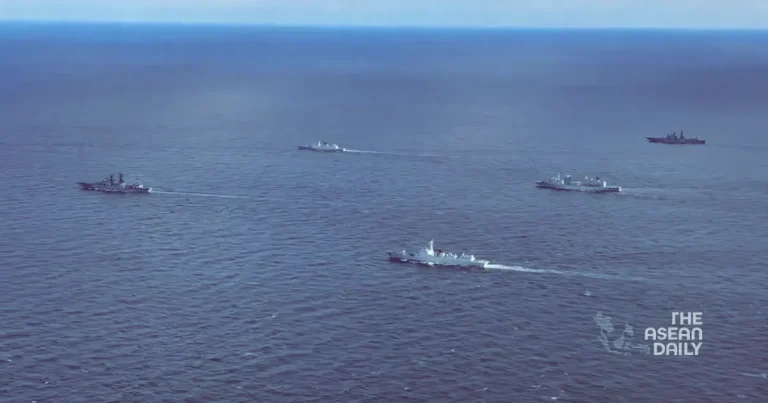1-10-2024 (BEIJING) In a significant display of strengthening Sino-Russian relations, the two nations have conducted their inaugural joint coastguard exercise and patrol, signalling a shared interest in Arctic shipping routes. The manoeuvres, which took place in mid-September, have drawn attention from international observers as a clear indication of the countries’ burgeoning strategic partnership.
The China Coast Guard reported that its vessels, the Meishan and Xiushan, sailed to the Peter the Great Gulf in the Sea of Japan for a five-day drill commencing on 16 September. The exercise encompassed a range of scenarios, including maritime law enforcement, interception of suspect vessels, sea rescue operations, and firefighting drills.
Following the initial exercise, the Chinese vessels embarked on a joint patrol with their Russian counterparts in the North Pacific’s high seas, venturing close to Arctic waters. This collaborative effort came on the heels of earlier joint naval and air force drills between the two nations in the same region.
While Chinese state media insisted that these activities were not aimed at any third parties, experts view the exercises as a clear statement of intent. Zhou Bo, a senior fellow at Tsinghua University’s Centre for International Security and Strategy, described the joint patrol as reflective of “a new height of political trust” between Beijing and Moscow.
In the Sea of Okhotsk, a joint detachment of warships of the Russian Navy and the PLA Navy practiced destroying UAVs and searching for a submarine of a conditional enemy.https://t.co/aXYukzOTUY pic.twitter.com/iPj6yIcQ2e
— Massimo Frantarelli (@MrFrantarelli) September 30, 2024
Military analyst Song Zhongping highlighted the strategic importance of the patrol’s location, suggesting it demonstrates China’s commitment to cooperating with Russia on its ambitious “Polar Silk Road” initiative. This plan, unveiled in 2018, aims to capitalise on emerging shipping and resource opportunities in the Arctic resulting from climate change.
The Northwest Passage, linking the Atlantic and Pacific oceans, is increasingly seen as a potential game-changer in global maritime trade. As melting ice raises the possibility of a year-round sea lane, China, Russia, and the United States are vying for influence over what could become one of the century’s most crucial maritime assets.
In May, Chinese and Russian leaders signed an agreement to develop Arctic shipping routes jointly. Song emphasised the critical role of coastguards in safeguarding these routes, stating, “Ensuring the safety of the Arctic routes aligns closely with the practical interests of both China and Russia.”
Former PLA equipment expert Fu Qianshao framed the joint patrol as a response to US claims over the Bering Strait and its cooperation with Canada and Nordic countries. Fu also stressed the importance of preparedness for international emergencies along these routes.
Malcolm Davis, a senior analyst at the Australian Strategic Policy Institute, suggested that the exercises hold greater significance for China than for Russia. He noted the formidable nature of China’s coastguard, which includes many former naval vessels, and interpreted the joint patrol as a strong signal to Moscow and other Arctic states of China’s intention to be an active power in the region.




